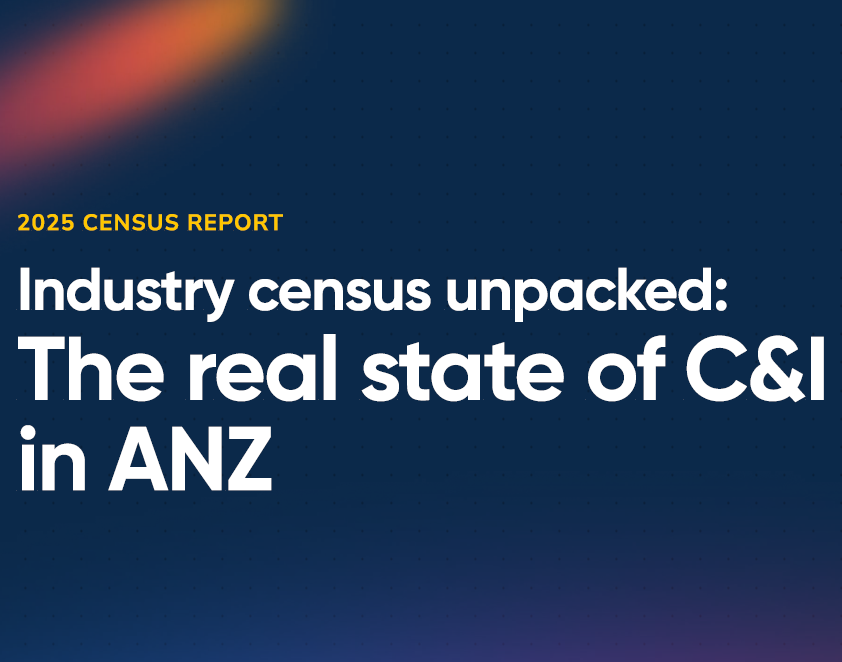New Zealand is steadily evolving as a solar powered country, with an increasing number of residential homes electing to install solar energy. With the trend having already gained momentum and significant penetration in many countries, including Australia, the U.S, and China, the uptake of solar power for residential use is now starting to increase at a greater rate in New Zealand. Although many factors have contributed to this uplift, recent improvements in solar energy design software have drastically enhanced the ability to estimate the energy generation potential of rooftop solar systems, well before any customer purchase decisions are made. This helps to demonstrate the potential of solar energy for individual homeowners and enable the design of systems to meet customer specific needs. The ideal outcome from using such a solar power calculator in NZ is not just to provide the customer with a clear understanding of expected generation, month by month and annually, but also to demonstrate any potential shading issues or other factors which may de-rate the output from the solar energy system for residential use. When evaluating whether solar energy is right for your situation, it makes sense to have a very clear picture of the real benefits prior to installation.
As the chart below demonstrates, residential solar installations in NZ have climbed from 2,412 systems at the end of February 2014 to 16,769 systems at the end of February 2018, an increase of 14,357 installations over this four year period. Although this is a significant increase on the baseline of 2014, market penetration represents only ~1% of NZ’s housing stock. As a country, NZ is in a very strong position to benefit from the years of market development and billions of dollars of incentives and subsidies plowed into the solar industry by numerous other countries. Ongoing technology improvements, further component cost reductions and an increasing focus on energy storage will continue to allow NZ homeowners to truly benefit from the adoption of solar power for residential use.

Options to consider - What is the right size for my residential solar power system?
In order to find out which size solar system is most appropriate for your residential property, you first need to weigh up a few critical elements. As an initial consideration for the installation of solar panels in NZ, the primary focus is to understand how well any system will work to reduce your power bills. The smallest size typically installed in a residential home is 1.5 kW and systems usually won’t exceed 10 kW. The average size of 3 kW to 4 kW will make a very significant contribution to the annual energy demand of most New Zealand homes, reducing the level of electricity purchased from the grid by maximising the output of solar power for residential use. The aim of eliminating your electricity bill entirely with solar energy becomes much more viable with the installation of energy storage (batteries). In addition to energy storage, finding the most effective ways to consume solar power at the time of generation will help to significantly increase the level of self-consumption. This isn’t all hard work and penny pinching though, and can be easily set up and automated with the introduction of smart technology to help maximise the benefit of your solar energy system. For instance, any excess energy generated from your solar power system in NZ can be easily directed and diverted to run home appliances, such as a hot water cylinder.
As there aren’t any subsidies or incentives for solar power in NZ, electricity provided from the grid via your electricity retailer is purchased at a much higher rate than what you will receive for exporting electricity from your solar energy system. As such, focusing on self-consumption and working with companies that have the same philosophy and expertise to make it happen, will ensure that you get the most out of your solar power system. Two examples of this are outlined below, where customers of ZEN Energy Systems have installed solar systems with:
- a solar diverter
- energy storage (batteries) and a solar diverter


The above results show:
- a correctly sized solar energy system with a solar diverter, can help to reduce the amount of electricity purchased from the grid by up to 60%, and
- a correctly sized solar energy system with energy storage and a solar diverter, can help to reduce the amount of electricity purchased from the grid by up to 95%, or even greater.
These results help to demonstrate the very real value of solar energy for residential use in NZ. This will only continue to improve as technology further develops and other connected devices and controllers come online using technology such as the Internet of Things.
What are your current electrical needs? Questions to ask before installing solar power for residential use
Are you considering solar power for residential use to lower or offset a portion of your power bills, or, even better, take your bill to nil? In the NZ solar energy market, it’s not about installing the maximum number of solar panels as possible on your rooftop. With a well designed grid-tied system, you could well end up with a system of varying size, but it should always be based on your individual circumstances. The following are some important factors to consider:
- The amount of electricity you consume - this can be analysed on a daily, monthly and annual basis
- How you consume electricity across the day - is it in the morning, during the day, at night or a broad combination of all three?
- How much do you pay for electricity from your retailer and to what extent do you stand to benefit from installing a solar energy system?
- Your goal or goals for installing a solar energy system - as referenced above, do you want to offset a portion of your electricity consumption or try and get your bill to nil?
- The budget you wish to allocate in order to achieve your solar energy goals
- Whether you want your system to have future expansion potential
- Whether you want to add energy storage in the future, and if so, do you want it to be a seamless transition?
These are just some of the questions you may consider when looking at adopting solar power for residential use in NZ.
Statistics show the average size solar power system for residential use in NZ is about 3 kW. This appears to be a popular size due to the fact it can make a strong impact on electricity bill reduction and at the same time, it is relatively affordable. However, this size system will not completely eliminate the power bill of your typical NZ household. Instead, with a 3kW solar system, you should be able to self-consume most of the power generated, with the proportion of self-consumption increasing if paired with energy storage or devices such as a solar diverter.
Solar power for residential use: Understanding the consumption of your appliances and how they will fit in with your solar energy plan
Solar power is produced broadly throughout the day, but peaks around mid-day depending on the orientation and pitch of the solar panels. However, the peak times for residential electricity consumption are typically early morning as we make breakfast, clean and take showers etc, and at the other end of the day, in last afternoon to early evening, when cooking, heating, lighting and other parts of the home begin to be used. In addition to these traditional peaks, residential homes always have a baseload demand that runs throughout the day. The use of solar energy, energy storage (batteries) and smart technology such as solar diverters, not only help to provide solar electricity to offset grid provided electricity, but they can also load shift the electricity demand within the home and maximise the self-consumption of solar energy. Any solar energy system installation should aim to ensure that you obtain the maximum benefit from your solar power for residential use, and this revolves around self-consumption - the greater the level of solar energy used inside your home, the better the return on investment.
Solutions for solar power for residential use should be based on solar energy companies understanding and being able to analyse the amount of energy consumed during the day and the timing of that consumption. The ZEN Energy Systems solar power calculator can help to retrospectively analyse energy consumption patterns over the course of a year, and in doing so, ensures a decisions are made on a fully informed basis.
Plan ahead when installing solar power for residential use - have a plan for both system expansion and adopting energy storage
Sometimes it can make sense to start with a smaller solar power system in NZ, as it can reduce the initial investment and allow you to bed a system down and get used to it. If you want to take this path but have the ability to increase the system size in the future, your initial installation needs to be planned with forethought and the selected inverter must to be able to function with both the current and larger planned systems. There are some additional considerations when evaluating both string and hybrid inverters for your solar energy system in NZ, but adding further panels to your system should always be possible provided you have this pre-planned and your solar energy provider is working with you on your longer term plan.
In a nascent solar energy market, such as New Zealand, there are many benefits of planning for energy storage (batteries) right from the start. In this regard, the trend is your friend, and there is the expectation that battery volumes and pricing will continue to track the path of solar energy equipment over last decade or so. If you look at all of the advances in both stationary energy storage and for electric vehicles, it is a difficult proposition to argue against. However, energy storage for solar goes much deeper than a battery, it is also about how that battery works with your solar energy system and your home - how smart the combined system is as one unit and whether it will deliver the outcome you are looking for. The main options available when including energy storage with your residential solar energy system are:
- Retrofitting a battery to an existing solar energy system - in most instances, this is what we consider a non-managed AC coupled system
- Installing a Hybrid inverter system from the outset, with the ability to add batteries at the time or any stage in the future
This is actually a whole subject by itself, which we will expand on in future blogs. The retrofitting of a battery to create a non-managed AC coupled system can make a lot of sense when the customer has an existing solar energy system and solar inverter. However, it will require a separate inverter for the battery side of the system (AC to DC and back again) and, being non-managed, the solar inverter and battery inverter will not be able to communicate. Where it is possible to create a managed AC coupled system for increased efficiency, you will most likely need to install a battery inverter which is certified as compatible with your solar inverter, or install a third party energy management system to allow communication.
In contrast to an AC coupled system, a hybrid inverter handles both the input and conversion of electricity from the solar panels as well as the conversion and control of the batteries. When considering solar from a greenfield position, this provides the greatest amount of flexibility as batteries can be added at any stage in the future. As an all-in-one unit, the right hybrid inverter system will be fully managed and provide a smart and efficient solution for residential solar energy. Further to this, intelligent hybrid inverters, such as those developed by Redback Technologies or Huawei, allow for greater control and utility of solar energy, and can interact with the grid in a way that creates the greatest economic benefit to the residential homeowner. This helps to maximise system efficiency and savings from your solar energy system.
Know your electricity - Do’s and don’ts for using your residential solar power system effectively
Firstly, make sure you have a thorough insight regarding which of your home appliances use the most and the least amount of energy. Being mindful about electricity is good practice, however, the installation of a solar energy system is not about cutting back on your comfort or drastically changing your lifestyle. Yes, some behavioural change will add to the benefit of your solar energy system, but there are smarter ways to ensure maximum benefit from your system than trying to manually control the timing of electricity usage within your home.




